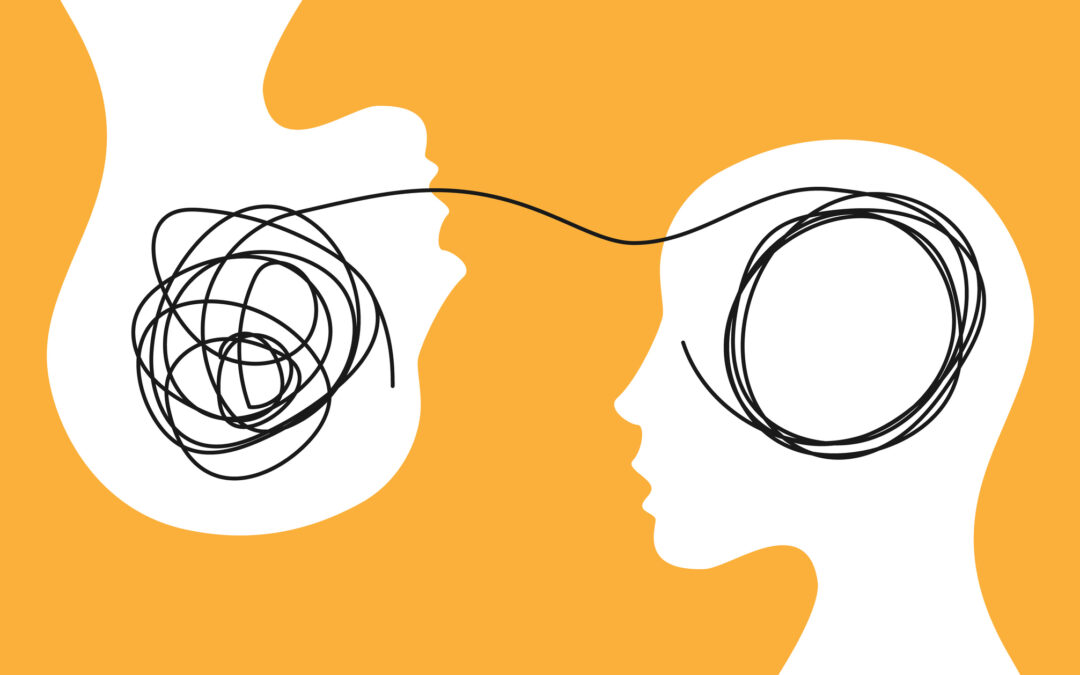
by Ericka Martin, LMHC, LPC | PTSD, Trauma
Over the past several years, there have been numerous traumatic events making news all across the country. From incidents of mass violence to devastating natural disasters, hundreds of thousands of Americans have experienced or witnessed a disastrous or life-threatening event. In addition to tragedies such as these, anyone who has experienced a shocking or dangerous incident (such as a car accident, a robbery, an act of violence, or sexual abuse) is at risk of developing Post Traumatic Stress Disorder (PTSD).
PTSD is a serious mental disorder that requires medical treatment. PTSD can have devastating effects on every aspect of a person’s life, from their marriage and family, to their friendships and career. If you’re concerned that a loved one may be suffering from PTSD, here are some signs to look out for.
Reliving the Trauma
Someone with PTSD have repeated, involuntary re-experiences of the event or intrusive thoughts about it. They may experience bad dreams or flashbacks. They’re also vulnerable to certain triggers that remind them of what happened, such as sounds or smells.
Angry Outbursts
Someone silently suffering from trauma may be prone to anger, agitation, or sadness. Feeling irritable, the sufferer may be prone to outbursts of anger that they can’t control. If you’ve noticed your loved one frequently losing control and lashing out in anger, this is a sign that they’re suffering emotionally and require treatment.
Withdrawal
People suffering from PTSD will avoid people and situations that are reminders of the situation. As the victim continues to isolate themselves, how their friends and family react to their withdrawal will likely further isolate them, causing additional emotional distress.
Numbing
It’s not uncommon for people with PTSD to self-medicate, seeking an escape from high levels of stress and difficult emotions. Some may keep themselves so busy they don’t have time to think or feel. Others might numb with food or sleep. Others turn to drugs or alcohol, which leads to risk of addiction. The painful trademark of substance abuse is the growing need for more of the drug to produce the same high. If left untreated, as substance abuse grows, the abuse will turn to addiction and eventually dependence. This can have devastating effects on every facet of a person’s life.
If you’re concerned that a loved one is experiencing symptoms of trauma, the most important think you can do is encourage them to seek professional diagnosis and treatment as soon as possible. Assure them of your support throughout the process.
For additional guidance and recommendations from a licensed professional, call our office today. We have licensed counselors available to help with trauma processing, including counselors that use evidenced-based approaches such as EMDR and Cognitive-Behavioral Therapy for Trauma.

by Ericka Martin, LMHC, LPC | PTSD, Sexual Abuse / Trauma, Trauma
On an almost daily basis we hear stories of female sexual harassment and abuse in the media. Sadly, male sexual abuse is fairly common, but the issue is under-reported by the media and society in general.
One US-based study found that 1 in 6 boys experience some form of sexual abuse by the age of 18. Other research suggests the ratio may be as high as 1 in 4.
Why is this conduct not reported more often?
To start, most men are embarrassed to be the victim of sexual abuse, particularly when it is perpetrated by other men. In our culture, men are supposed to be invulnerable and not feel emotional pain. In other words, guys are supposed to be the strong, silent type. It simply goes against the silent rules of being a man to acknowledge trauma and admit that you are suffering.
As a result, male victims of sexual abuse shove their feelings down and deny what happened. This repression of experience and emotion can and often does lead to isolation, anger, sadness, shame, guilt, and fear. Post-traumatic Stress Disorder (PTSD), major depression, anxiety, and substance abuse are also common among victims of male sexual abuse.
It’s important to get help.
If you are the victim of sexual abuse, understand that you are far from alone. As the topic becomes more mainstream, there is less judgement by those who don’t understand how a man could be victimized in such a way. Education regarding male sexual abuse and demystifying misconceptions surrounding rape is essential to help male survivors heal and speak out.
While more needs to be done to bring this subject to mass awareness, it’s important that individual victims seek support. A therapist will be able to help you deal with your complex emotions and offer strategies to move through and past feelings of depression and anxiety. In time, healing can and does occur.
We have trauma counseling specialists available.
If you or someone you know is a male victim of sexual abuse and would like to discuss treatment options, please get in touch. A counselor from our team would be more than happy to help. We have two counselors available with an EMDR specialty and one who is a certified IATP Clinical Trauma Professional.

by Ericka Martin, LMHC, LPC | PTSD, Trauma
Have you heard of EMDR? Among therapists, it’s all the rage as an up-and-coming, evidenced based approach for trauma treatment. Because it is different than standard talk therapy, we thought you might have some questions. We’d love to help demystify EMDR as a form of trauma treatment.
What is EMDR?
Standing for Eye Movement Desensitization and Reprocessing, EMDR is a specialized kind of therapy that allows traumatic memories to become desensitized, losing some of their emotional intensity. EMDR is an 8 step process. That process does NOT begin with the trauma processing itself. Instead, the therapist ensures that you have a stockpile of effective coping skills and resources to aid you in the trauma processing experience prior to beginning any sort of trauma processing. The goal throughout the therapy is to provide relief to trauma triggers and not to re-traumatize you in the re-telling of experiences. Only once a clear plan has been developed and coping skills are in place will the therapist guide you through the re-processing experience. Re-processing often involves specialized eye movements that the therapists guides you through while you simultaneously access a specific traumatic memory or severe fear. The two elements use both halves of your brain to more effectively neutralize the negative emotions and desensitizing the memory. The goal of EMDR is not to erase the memory, it’s to reprogram it so that it’s less traumatic.
What conditions can EMDR help with?
There are a lot of different situations in which EMDR can be helpful, making it popular for therapists and counselors around the world. It is best known for helping those clients who are recovering from a traumatic experience or those diagnosed with Post-Traumatic Stress Disorder (PTSD). However, research is indicating that EMDR may also be helpful with conditions such as anxiety/panic disorders, grief, severe fears or phobias, and even “common” problems such as self-esteem issues or anger issues.
How is it helpful with trauma?
There are a lot of ways the EMDR can be helpful to dealing with trauma. This specific kind of therapy can not only help someone heal from a trauma experience, but also improve their quality of life. For example, EMDR can be helpful with:
- Identifying the root memory: One key step in the EMDR process is uncovering where the trauma comes from, which can be helpful in understand when, where, and how it started.
- Processing the memory in a healthy way: EMDR is all about seeing the memory from a different point of view in terms of making it less traumatic and overwhelming. This perspective shifting plays a major role in the healing process.
- Improving your quality of life: EMDR tends to be helpful in reducing trauma triggers and reducing the impacts of trauma in your life.
What are the risks of EMDR therapy?
EMDR does not come without potential risks. Though EMDR tends to be gentle and stress-reducing, there is a potential risk of an increase in flashbacks, nightmares, or anxiety, usually in the short-term. Other memories may also resurface as trauma processing starts up that may be distressing. If you are in recovery from an addiction, EMDR processing may trigger feelings that, in the past, may have lead to a relapse. If you are a person in recovery (or actively use substances to cope with feelings), this will be something you should disclose to your therapist.
The EMDR therapists on the Star Meadow Counseling team will fully review the risks and benefits of EMDR therapy with you in helping determine if it is a therapeutic approach that might be a fit for you.
EMDR can offer real results for people dealing with trauma. For those looking for options alternative to traditional talk therapy, this may just be the right fit.
Want to read more from our blog? Check out one of these articles:












